3 Words About Former East Germany Posted by Constanze on Jul 22, 2019 in Culture, Language, Music
Guten Tag! I recently read a book about the history of Germany. It contained many words I hadn’t heard of before, that described specific aspects of eras in German history. The section on the post-war/Cold War period (1945-1991), in particular, mentioned several German words when discussing the topic of East and West Germany. We all know that Germany was divided into East and West, but what we perhaps aren’t as familiar with are the terms used to describe what was happening as a result of this divide. In this post I’m sharing the ‘east’ words (words related to former East Germany). If you’re interested in reading about the ‘west’ words (words related to West Germany), there will be a post that soon. I hope you find this as interesting as I did!
3 Words About Former East Germany
die Ostflucht
Ostflucht is a compound noun made of the words ost (east) and die Flucht (escape/flight, as in, ‘fleeing’). After Germany was divided into east and west, and before the Berlin Wall went up, up to 200,00 people per year fled from East Germany to West Germany. The word Ostflucht was used to describe this phenomenon.
Ostrock
The word ‘rock’ in Ostrock is nothing to do with the German word der Rock (skirt)! It is in fact an English loanword and refers to rock music. Ostrock was the rock music movement that grew in East Germany in the 1970s. Unlike rock music from the West, Ostrock music was heavily policed by the socialist East German government, and anything that did not comply with their rules was banned. If you’d like to listen to some Ostrock, look up the bands Puhdys, Karat, Silly, or Pankow, to name a few.
die Ostalgie
Ostalgie is a portmanteau of the words ost (east) and die Nostalgie (nostalgia). It describes the nostalgia former East Germans felt for the DDR after reunification. One reason for Ostalgie is that, after reunification, a lot of well-known brands disappeared from the former East Germany. Something that is often referenced when talking about Ostalgie is the Trabant car. This was a popular car made by former East German manufacturer VEB Sachsenring Automobilwerke Zwickau. The Trabant car is even painted on a mural on the remains of the Berlin Wall, where it appears to be crashing through the wall.
Another object of Ostalgie is das Ampelmännchen, a diminutive of der Ampelmann, meaning ‘pedestrian crossing man’. When Germany was divided, the East had different pedestrian crossing lights to the West. While the west used the standard, human figure, the east used a male figure in a hat. The Ampelmännchen is one of the only East German things to survive reunification, as it was so well-loved that people campaigned to have it brought back once it was removed following reunification!
Look out for my next post on words related to West Germany! Bis bald (see you soon).
Related vocabulary
history – die Geschichte
Cold War – der Kalte Krieg
East Germany – Ostdeutschland / Deutsche Demokratische Republik (DDR)
West Germany – Westdeutschland / Bundesrepublik Deutschland (BRD)
Berlin Wall – die Berliner Mauer
to flee – flüchten
Portmanteau word – das Kofferwort (read the post on this here!)
German reunification – die Wiedervereinigung

Build vocabulary, practice pronunciation, and more with Transparent Language Online. Available anytime, anywhere, on any device.



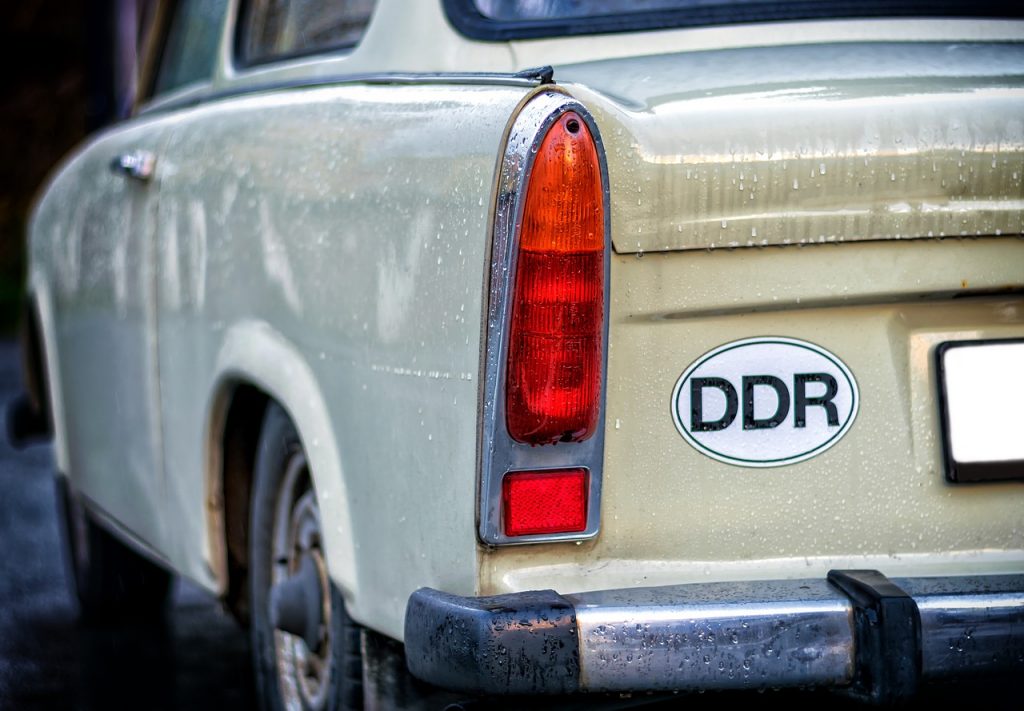
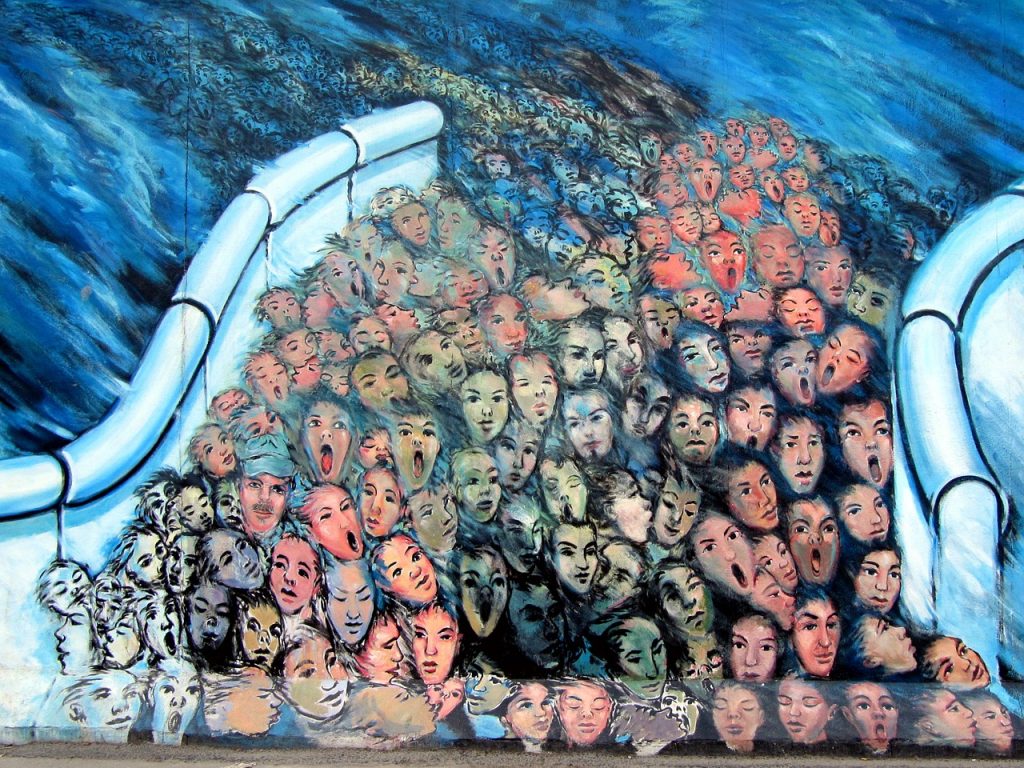

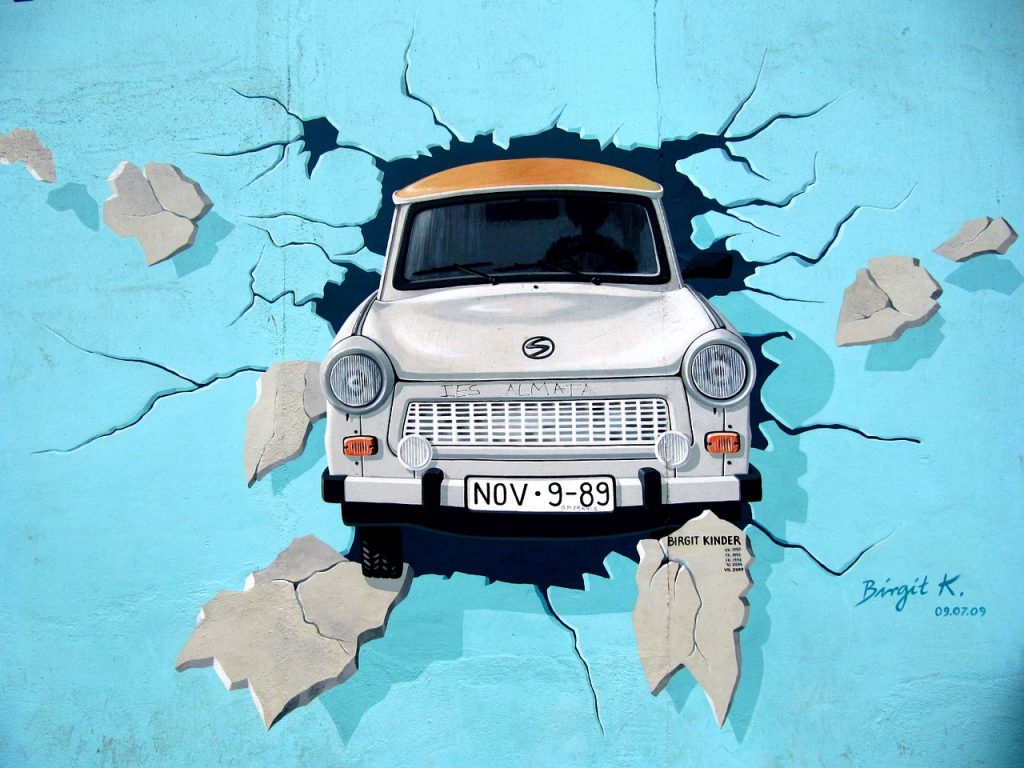
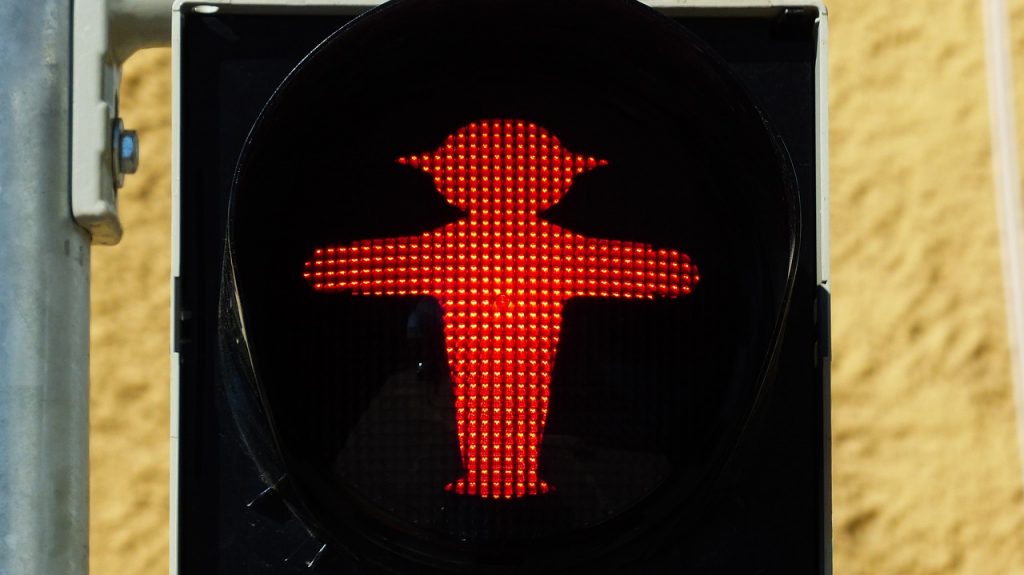
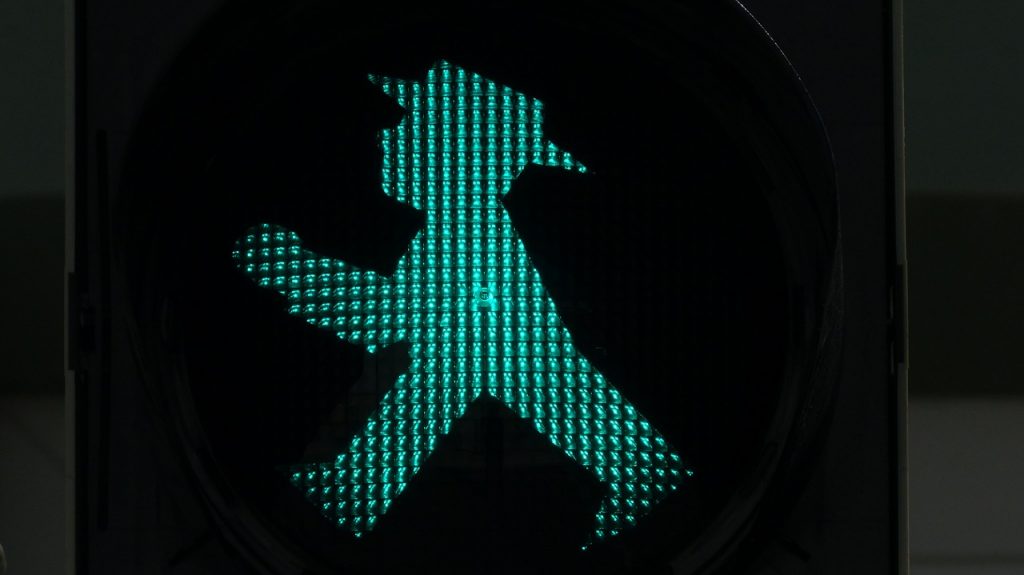

Comments:
Catherine:
This is a great entry point to a complex history. Thank you for writing it. 🙂
Constanze:
@Catherine I’m glad you found it useful, Catherine! Thanks for commenting.